Local and regional governments from around the world place care at the center of building peaceful societies at the 4th World Forum on Cities and Territories of Peace
06.07.2023
More than 400 local and regional leaders and elected officials, national and United Nations representatives gathered in Bogota on June 27 and 28, 2023, for the IV Forum of Cities and Territories of Peace, organized by Bogota and United Cities and Local Governments.
Local and regional governments from around the world debated and advanced a local peace agenda built around care, and with the transformative diplomacy of local governments as a banner. The five axes of the Forum (Territorial Peace; Environmental Peace; A Social Contract for Common Care; Transition to Citizenships of Peace; and Women, Peace and Security) built an agenda on which the two days of debates were able to feed the peace agenda of the world organization.
Claudia López, Mayor of Bogotá and UCLG Vice-President for Metropolis, opened the Forum by praising the role of local and regional governments in peace-building, and addressing the trajectory of the Forum itself. Stemming from its foundation in Madrid by then Mayor Manuela Carmena, through the rights-based approach and innovation of the Forum in Mexico, under the leadership of Claudia Sheinbaum, and opening the new stage in Bogota, which brought care and combating inequalities to the centre of peacebuilding.
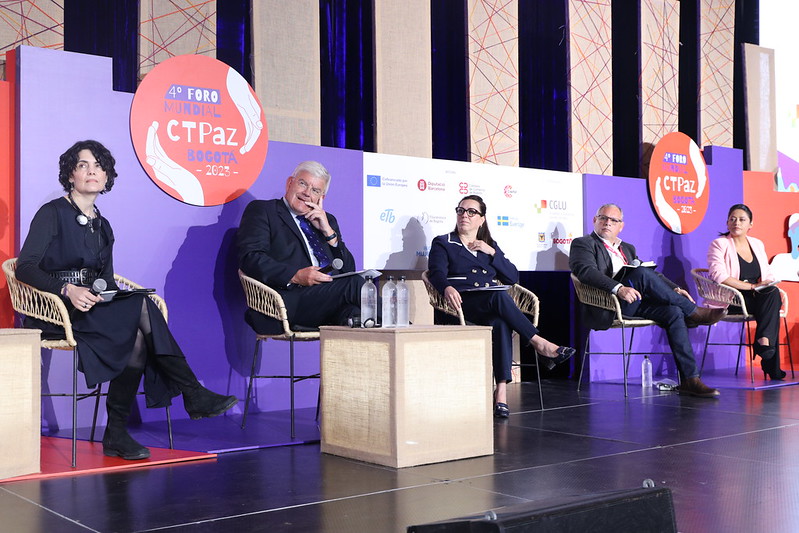
Participants addressed the role that local and regional governments should play in the face of major conflicts, addressing both the current role and limits, and envisioning what the multilateral system of the future should look like in order to eradicate wars, building on the transformative diplomacy of local governments.
Participants addressed the importance of sustainable peace built not on a conception of the world based on borders, but on people, and pointed out the key importance of local democracy and city-to-city diplomacy as a transformative tool for peace, emphasizing multilevel dialogue, the reduction of inequalities at the local level, and the immediate response of local and regional governments when faced with a crisis.
Transformative diplomacy by local and regional governments to build bridges between communities
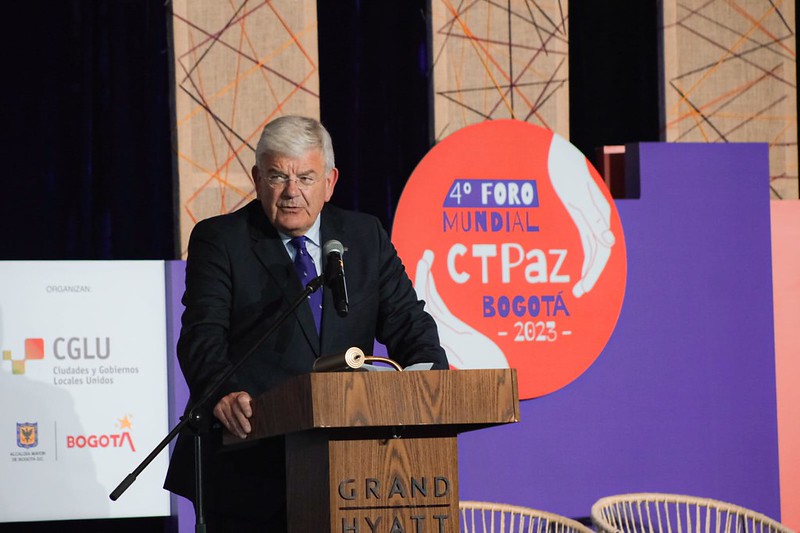
UN Deputy Secretary-General Amina Mohamed referred to the necessary role of local and regional governments in building peaceful, just and inclusive societies that provide equal access to justice, based on respect for human rights, offer better access to basic services, increase socio-economic opportunities and improve governance systems.
Jan Van Zanen, Mayor of The Hague and member of the UCLG Presidency team, opened the Forum by stating that, “within our competencies, our capacities and our understanding of peace, we are key actors in fostering territories of peace and preventing conflicts from escalating into violence. Local institutions are capable of mitigating the impact of conflicts, and we must increasingly make it clear that we have to be a relevant actor, with a voice and a vote, so that our communities can live in peace”.
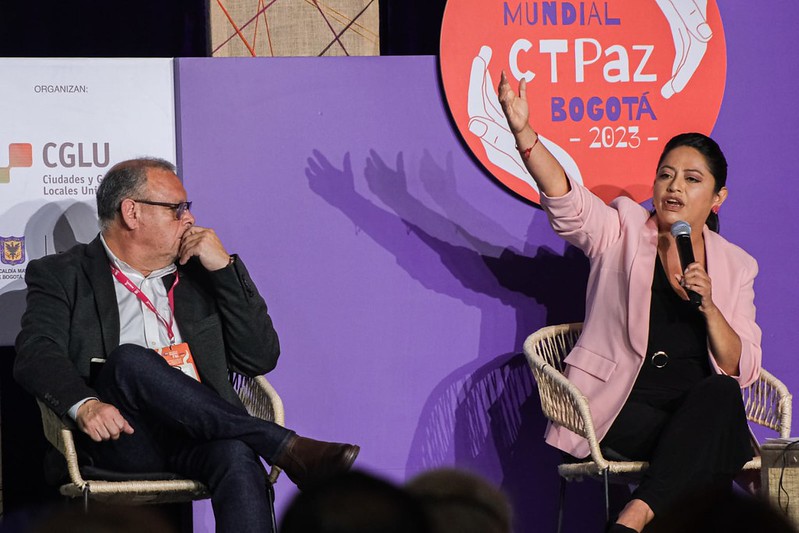
Paola Pabón, Prefect of Pichincha and Vice President of UCLG for the Forum of Regions, built on the statements of the Mayor of The Hague, noting that the role of LRGs in global peace discussions must be capital, generating diplomacy between citizens and regions, rebuilding trust and building peace, democracy and equality.
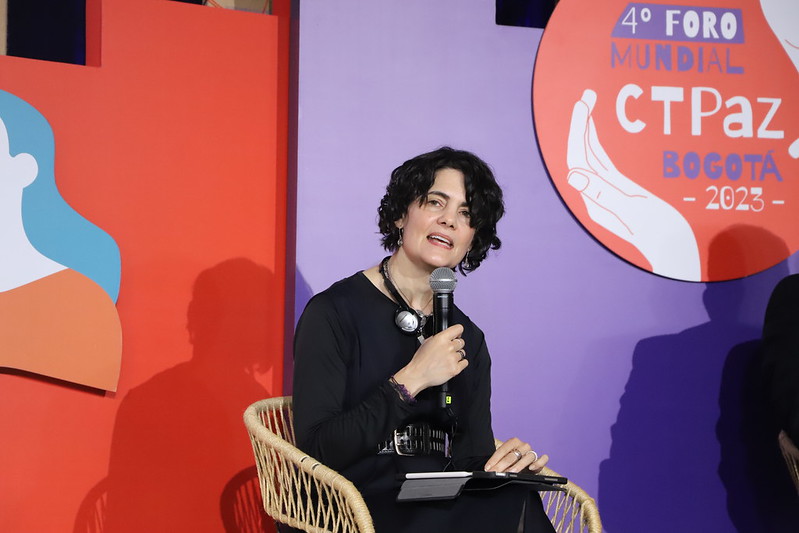
The role of national governments in promoting and fostering city diplomacy was addressed by Nina Hachigian, Special Representative for City and State Diplomacy of the United States, who noted the efforts of the U.S. national government to include local and regional governments in its lines of work and praised the importance of bringing together local peace-building experiences. He mentioned the importance of the Cities Summit of the Americas, which took place in Denver in 2023, which addressed social challenges at different levels of government in the Americas and is part of the U.S. multilevel strategy.
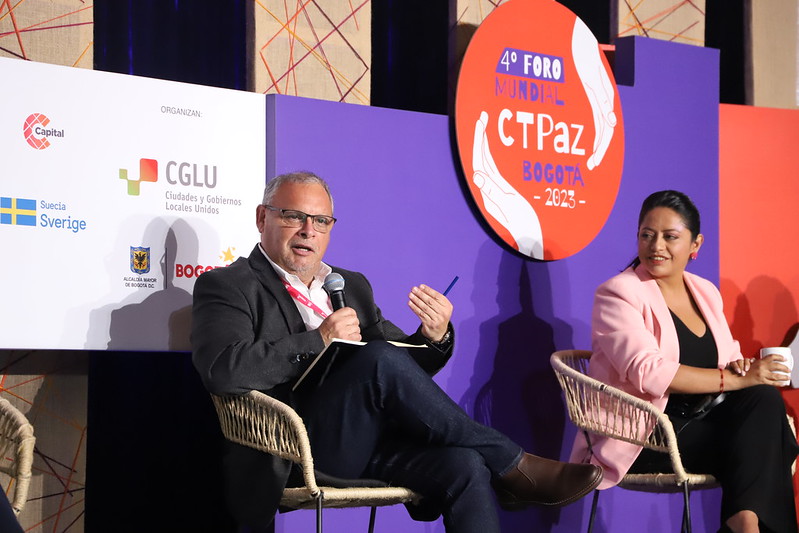
The protection of the commons as a basis on which to build peace was addressed by Rodrigo Mundaca, Governor of Valparaíso, who mentioned the need to “incorporate local governments in discussions on rights -also in the discussion on laws”- to link access to water to the management of common natural assets and basic social rights.
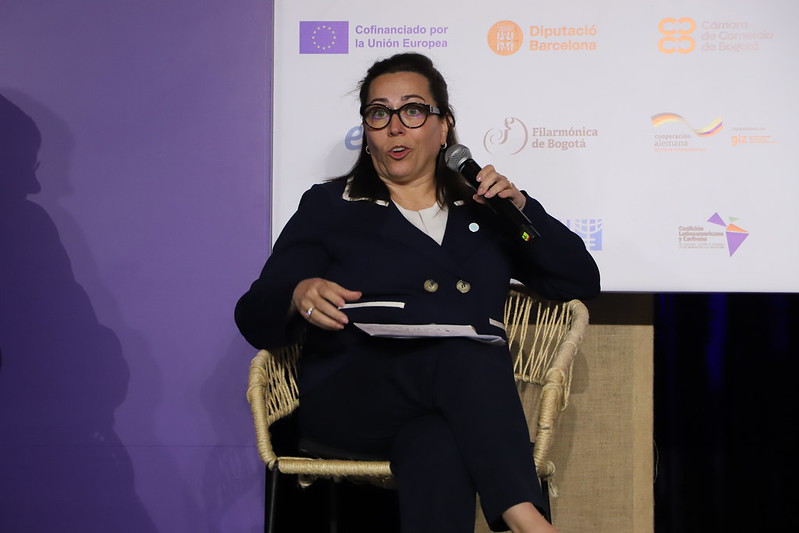
Mireia Villar, United Nations Resident Coordinator in Colombia, emphasized how the international system still had pending tasks to ensure a multilateral system that builds on the transformative diplomacy of local and regional governments, indicating that “we have to focus on listening, participation and resources to make them a reality, and foster the potential of those institutions that are closer to the problems, and resources closer to the people.”
Caring from the local level to achieve societies of peace
The role of local and regional governments in protecting women and girls was evident throughout the Forum. The United Nations Special Rapporteur on Violence against Women, Reem Alsalem, participated in a consultation with women mayors and elected officials within the framework of the Forum, to advance an agenda to protect women from violence at the local level, and “to make gender-based violence clearly visible”, pointing out that “it is the job of the entire state to protect women, including local and regional governments, and it is necessary to take ownership of this fight at the local level in order to protect all women”, and noting that the greatest threat to women in cities has been, and continues to be, gender-based violence. More than 25 local women leaders gathered at this consultation.
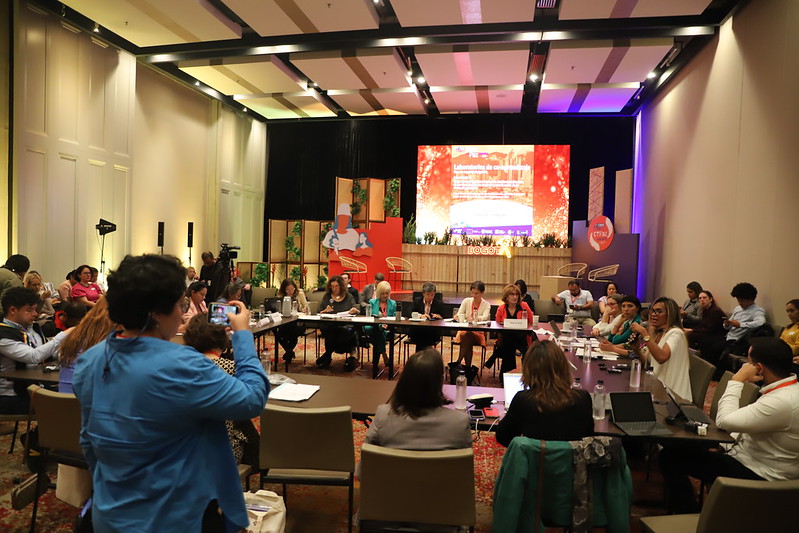
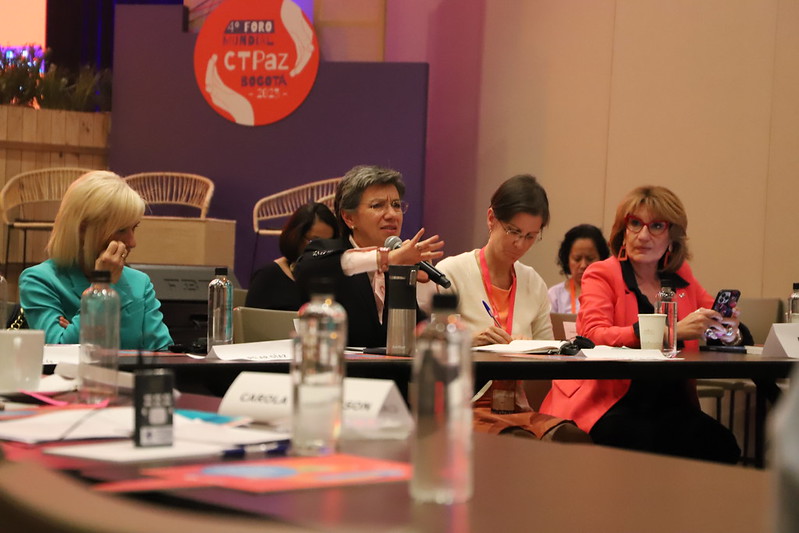
“What most affects social peace in Bogota is violence against women. The level of violence is alarming, that is why it is necessary to strengthen spaces for the cultural transformation of machismo and sexism”, Claudia López, Mayor of Bogotá.
The debate focused on the role of local and regional governments in the protection of women, with special emphasis on the relationship between the provision of public services and care policies, and the role of local and regional governments.
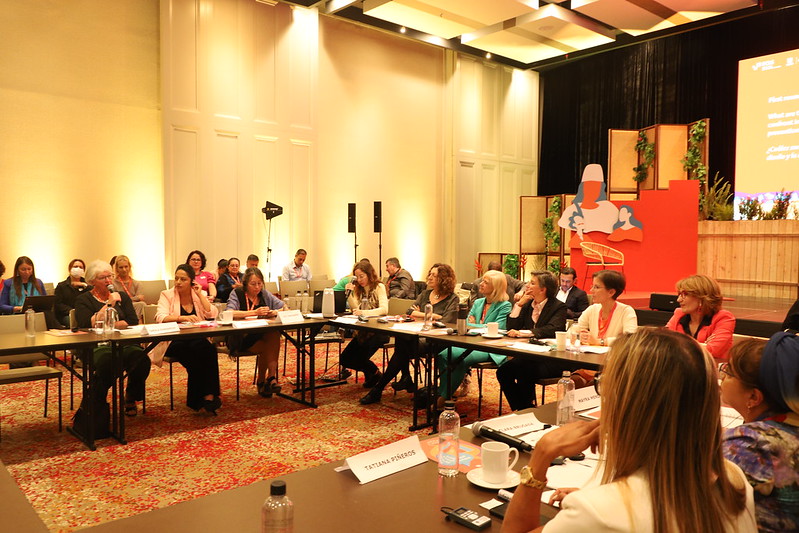
Throughout this debate, as well as the second day of the Forum, care was placed at the center of the debate, with a particular focus on the institutionalization of feminist practices and policies, with the tangible consequences of care policies and, fundamentally, with what it implies to develop governments that care, and what role women’s and feminist leadership play in making these policies land on the citizenry.
For the mayors, incorporating active listening to communities in local policies is vital for building bridges and trust between institutions and citizens, and also contributes to reducing inequalities. Building trust, they affirmed, also involves full gender equality, a foundation for developing democratic and peaceful societies
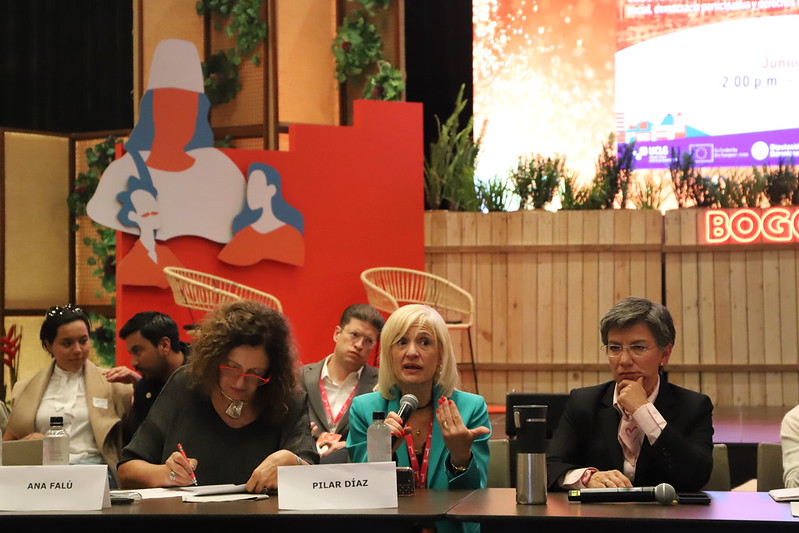
Pilar Diaz, mayor of Esplugues de Llobregat and delegate for International Relations of the Barcelona Provincial Council, pointed out that “it is the job of municipalities to ensure that everyone is cared for, to be able to protect and care for their neighbors, while also protecting their mental health and emotional needs. We must, and we do go, beyond services such as cleaning or police”.
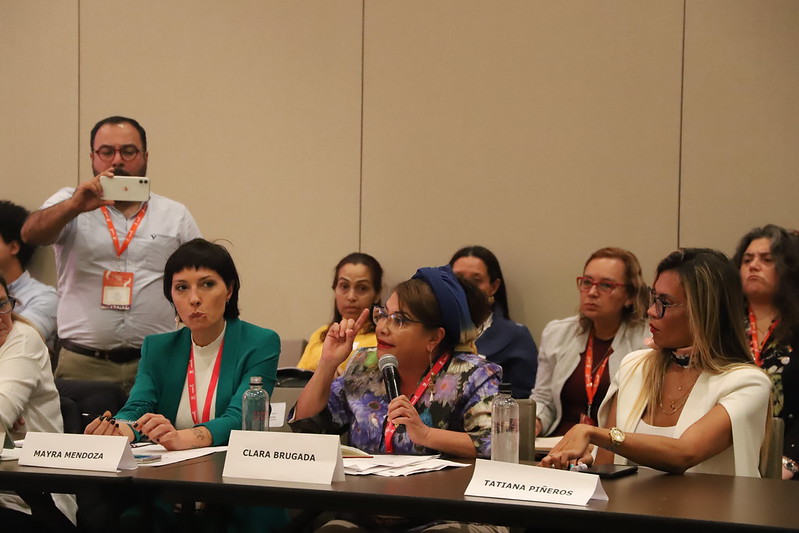
Clara Brugada, mayor of Iztapalapa, stressed the need to make caregivers – the vast majority of whom are women – visible and to accompany this recognition with monetary resources and, fundamentally, a legislative framework. In Iztapalapa, she pointed out, a constitutional rank was achieved on the public care system that even included public infrastructures.
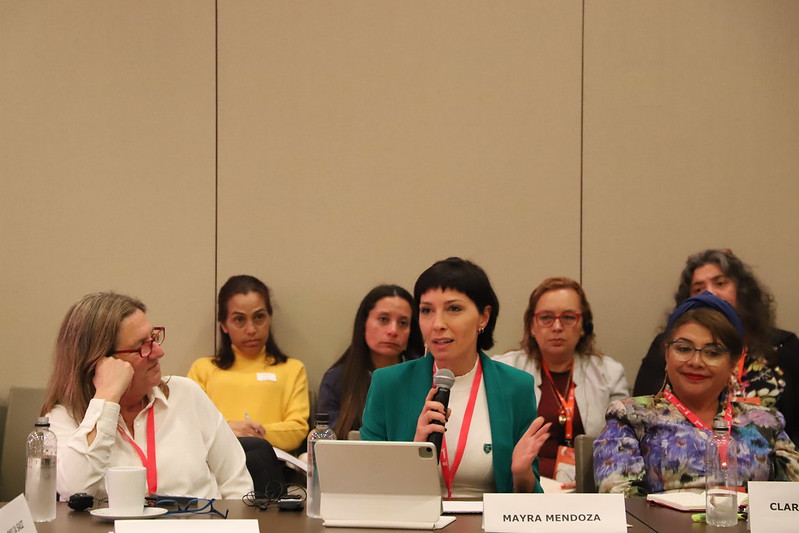
Mayra Mendoza, mayor of Quilmes, went further in the need to exercise feminism from the institutions. The recognition of women’s work, as other participants had addressed, must be recognized, but it is essential to address the power structures that generate these jobs, and that force women in greater numbers to exercise them. Building feminist practices must be done through the institutionalization of feminism.
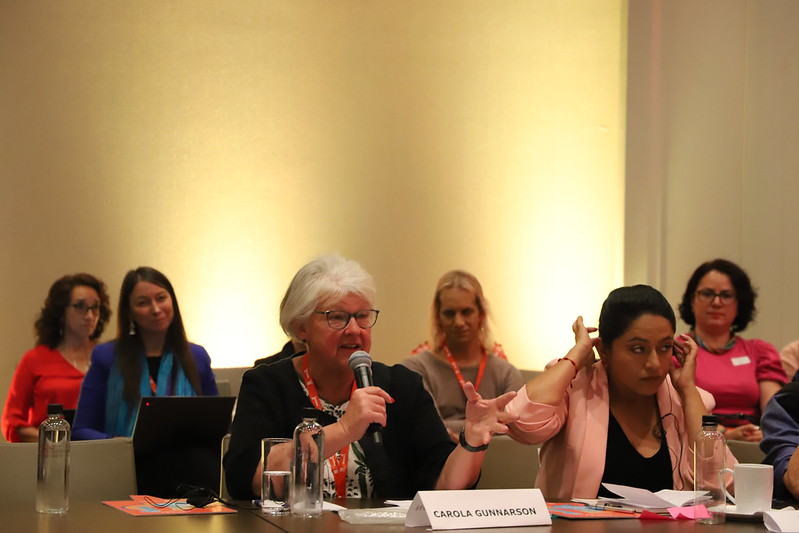
Carola Gunnarsson, mayor of Sala, made the link between growing polarization and the need for policies that care for democracy while caring for elected representatives. Growing hatred of local politicians, she noted, risks eroding institutions, making it difficult to develop pluralistic and trusting societies. Caring means protecting and fostering a democratic culture from the grassroots up.
In addition to these sessions, the Forum included high-level discussions on the role of climate change and migration in building peaceful societies in the future, the construction of reconciliation and peace measures, the important interrelationship between public services and the reduction of violence in cities, and important debates on urban security, the role of the police, and peace-building work between institutions and citizens
Rights and memory, keys to peace-building
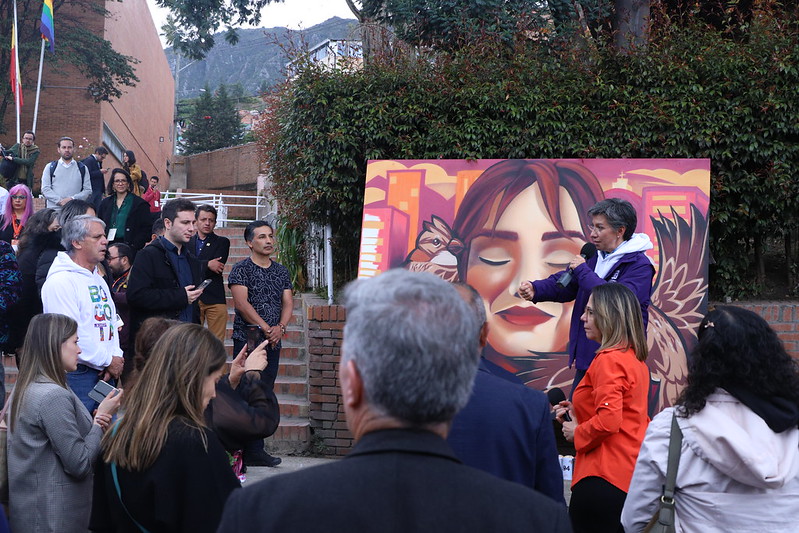
The exercise of the Cities and Territories of Peace Forum did not stop at the conversations that took place in the different sessions. Among the events, participants were able to take part in a visit to the Centre for Memory, Peace and Reconciliation in Bogotá, a monument and space that promotes peacebuilding through the recognition of the efforts of all people and institutions that pursue peace, and which pays tribute to those who lost their lives in pursuit of this goal.
The local and regional government delegation was also able to participate in the tour of the Apples of Care, a public policy developed by Bogotá that puts at the centre the recognition of women’s neglected care work. In the words of Mayor Claudia López, the care block is a decision that “recognises the demands and requirements of women in Bogotá”.
The care apples are an opportunity to provide opportunities, education, leisure, employment and protection from violence to hundreds of thousands of people, and especially to break the cycle of oppression that a life spent caring for others implies for many women. Through initiatives that put care at the centre, it reverses the trend of women being the sole caregivers and emphasises the work of local government in exercising this same care and teaching men how to do it.
The Secretary General of UCLG, Emilia Saiz, brought up the important contributions of the Forum and its relationship with the World Organization’s Pact for the Future, which has peace building and the reduction of inequalities as one of its pillars, and pointed out that the forum represents “feminist oxygen for the world”, putting care at the center of the planet, which will be the next spearhead of the municipalist movement, and of the world we want.
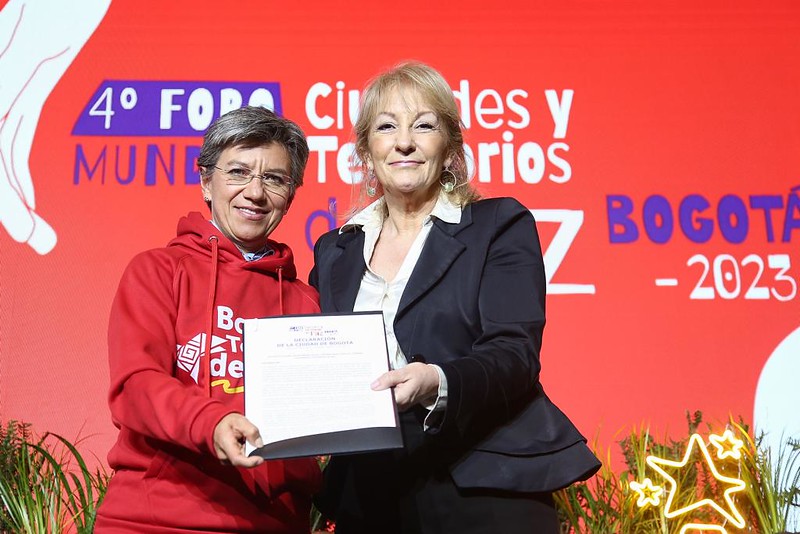
“Some persevere in violence, in exclusion, in a mere instrumentalization of democracy to win elections. This is not what democracy was invented for, but to unite us, to identify who takes care of the individual, the public, the collective” Claudia Lopez, Mayor of Bogota.
“Looking to the horizon, as mayor of Montevideo it is an enormous source of pride that this process can be repeated and expanded in my city. We hope to be able to bring mayors together to continue sharing ambitious peace-building experiences. See you in Montevideo”. Carolina Cosse, Mayor of Montevideo.